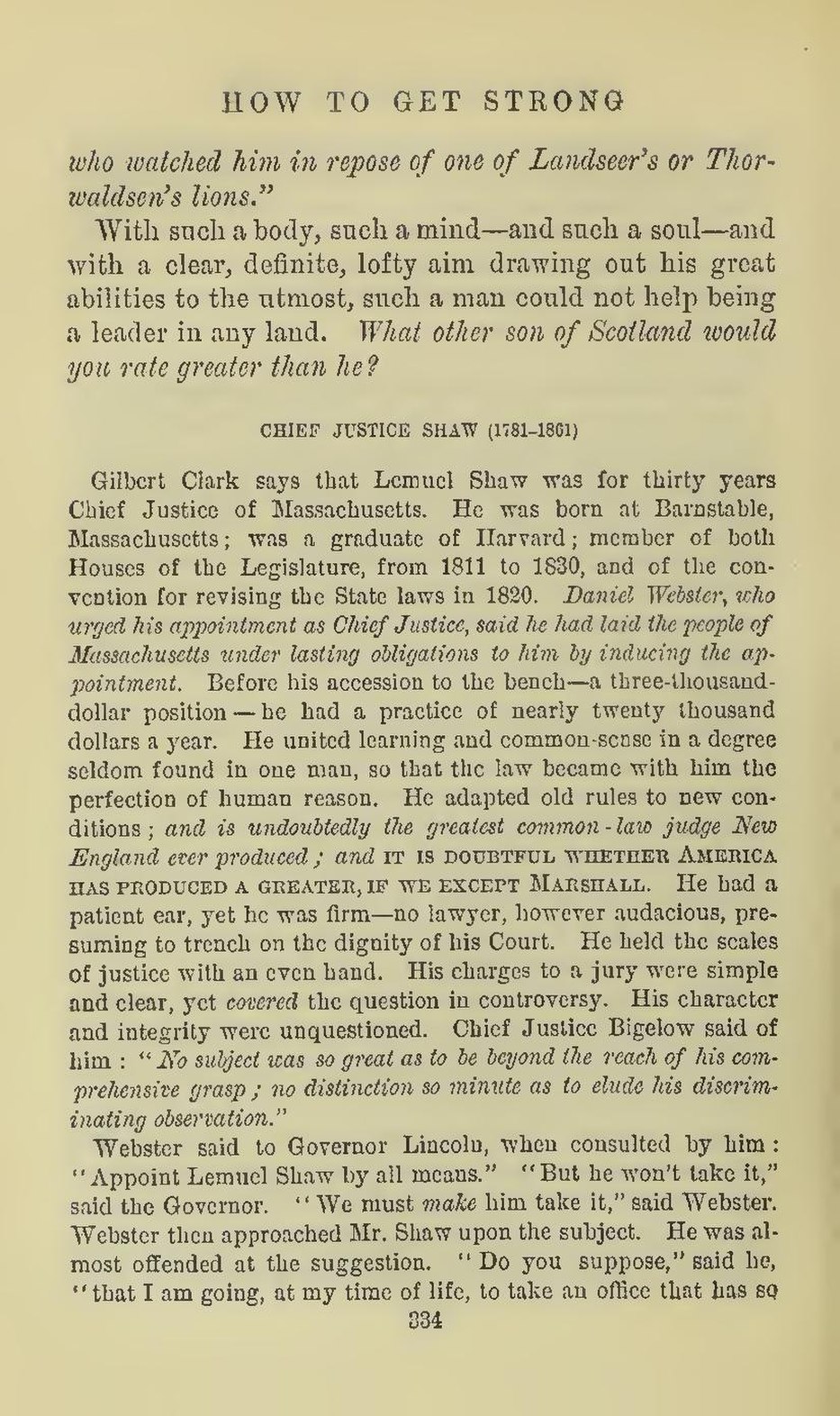HOW TO GET STRONG
who watched him in repose of one of Landseer's or Thorwaldsen's lions."
With such a body, such a mind—and such a soul—and with a clear, definite, lofty aim drawing out his great abilities to the utmost, such a man could not help being a leader in any land. What other son of Scotland would you rate greater than he?
CHIEF JUSTICE SHAW (1781–1861)
Gilbert Clark says that Lemuel Shaw was for thirty years Chief Justice of Massachusetts. He was born at Barnstable, Massachusetts; was a graduate of Harvard; member of both Houses of the Legislature, from 1811 to 1830, and of the convention for revising the State laws in 1820. Daniel Webster, who urged his appointment as Chief Justice, said he had laid the people of Massachusetts under lasting obligations to him by inducing the appointment. Before his accession to the bench—a three-thousand-dollar position—he had a practice of nearly twenty thousand dollars a year. He united learning and common-sense in a degree seldom found in one man, so that the law became with him the perfection of human reason. He adapted old rules to new conditions; and is undoubtedly the greatest common-law judge New England ever produced; and it is doubtful whether America has produced a greater, if we except Marshall. He had a patient ear, yet he was firm—no lawyer, however audacious, presuming to trench on the dignity of his Court. He held the scales of justice with an even hand. His charges to a jury were simple and clear, yet covered the question in controversy. His character and integrity were unquestioned. Chief Justice Bigelow said of him: "No subject was so great as to be beyond the reach of his comprehensive grasp; no distinction so minute as to elude his discriminating observation."
Webster said to Governor Lincoln, when consulted by him: "Appoint Lemuel Shaw by all means." "But he won't take it," said the Governor. "We must make him take it," said Webster. Webster then approached Mr. Shaw upon the subject. He was almost offended at the suggestion. "Do you suppose," said he, "that I am going, at my time of life, to take an office that has so
334
